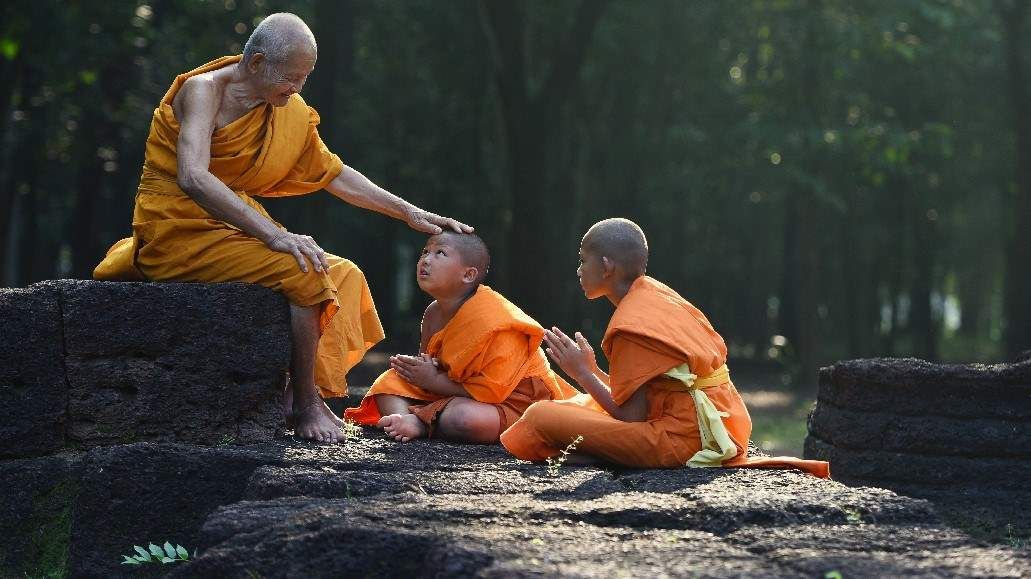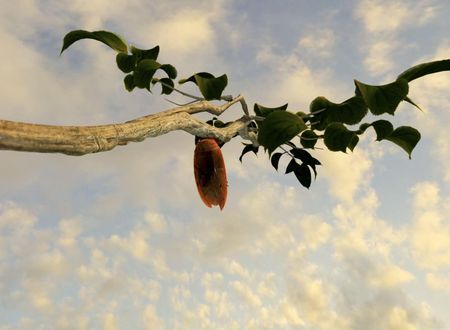It was a late November frosty night in the ashram. Its quite festive then as you know 🙂
There was an eclectic bunch of spiritual seekers, bundled up in the ashram dormitory that night. Some, like myself, were tired from the journey; but others were keen to chat with fellow seekers. I was eager to sleep. But uncomfortably squirming in my sleeping bag, frustratingly and involuntarily, I became a witness to the chatter around me.
The collective musings from that night that I am recalling here were on faith. Someone quoted Sufi Yunus’s lines:
“True faith is in the head,
not in the headgear.
A single visit into the heart is
Better than a hundred pilgrimages.”
…and then asked: ”Tell me, each one of you, How did you first discover your faith? What brought you to Badrika Ashram?”
Person A (a gentle visitor from nearby Punjab): “My wife and I had been trying to conceive for a few years. We prayed for a miracle, and our mannat was immediately fulfilled. We became believers.”
Person B: “Few years ago, I was desperately seeking divine help for my career. I started chanting Lalitha Sahastranaam three times a day, and my career took a miraculous turn. Now I have surrendered myself completely to Ma. And that’s how I found Badrika Ashram too, through the youtube videos on Shree Vidya.”
(Person B, if I recall correctly, was a middle-aged Californian, originally from Chennai).
Person C (He had driven his parents to the ashram from Delhi): “In fact, faith can only spring from miracles. How else? In some cases, it could be conditioning by family or society about having faith in a deity or a Guru, but that ultimately must have been originally inspired by a miracle too, witnessed by an earlier generation. How else can faith coup against ego? One just can’t be naturally born with no ego, and ego doesn’t abdicate of its own accord.”
(Woah, this guy sounded deep, and logical, and argumentative).
Person D: “Hmm interesting. Maybe that’s why certain shrines like Vaishno Devi or Ajmer Sharif are so popular. Khwaja Moinudeen Chisti is known to have performed many miracles. Maybe his mazaar, or the pindis of Vaishno Devi, and other popular places act as portals between human desires and cosmos’s matrix program, allowing a hack into the matrix and altering its code to fulfil the desires.”
(Seriously? A movie buff?)
Person C, continuing where he left: “That’s why saints or deities become so popular. Fulfilling the wishes is like dressing a wound, like getting a derailed train back on track.”
Person E, dismissively: “But what if the track is headed in the wrong direction? What we need is not bandaid, but a surgery of the soul. That’s why my faith is in becoming a yogi as Krishna defines one: staying desireless and detached in positive as well as negative circumstances. I want to be like that.”
(He sounds deep too, and knowledgable.)
Person D: “Didn’t Dev Anand so charmingly perform similar words by Sahir: gham aur khushi ka fark na mahsoos ho yahaan, main dil ko us muqaam par lata chala gaya, main zindagi ka saath nibhata chala gaya”
Person C: “All the charmers of the world say that: Krishna, THE lover among all lovers; Gautam, THE prophesied king among all kings. To stay neutral, to be a witness. They say karma is the infallible law, soul is immortal. They say: “Ask yourself: Who am I? I am neither the body nor the mind.” I have tried believing that. But is it not self delusion?”
(Hmm, C is definitely the argumentative type).
Person E: “It’s not self delusion if it’s true. And that’s where faith comes in. Stay the course and this faith will turn into knowledge of the ultimate. When there’s knowledge, you need no faith.”
Person A, to E: “So how did YOU find faith?”
Person E: “My faith is founded on the yogic lore, the stoic glamour of the guru-disciple relationship, Krishna’s words to Arjun, and Yamraaj’s to Nachiketa, and the elaborate experiences documented in autobiographies of mystics. And they even give us techniques: kriya yoga, vipaasana, mantras, meditation. That path alone leads to truly eternally blissful soul. I am aiming for THAT.”
Person C, jokingly: “You desire to be devoid of desire. Paradoxical.”
Person B, to person E: who by now had impressed everybody with his eloquence, and maybe matter too: “And why did you come HERE?”
Person E: “I always knew that I needed a Guru. I searched and searched. After all, if you want to invest your faith in a Guru, you had better be certain it is not misplacedly invested. I did feel naturally drawn to a few, but found it impossible to meet any of them. I went to a promising ashram, and I couldn’t even meet the Guru there, Her bodyguards and inner circle were too protective of Her. Or maybe She was indeed busy, I don’t know. All the established Gurus are like mature stocks; then I thought of investing in a pre-IPO stock. And so I came here.”
(That certainly let out chuckles among a few. This guy must be a banker I thought.)
Person F was the only one who hadn’t spoken so far. All eyes were on him, pressurising him to open up; he owed it to the group who had shown brave candour that night. He was past his prime, and nothing about him was remarkable.
F sighed and started speaking: “I was a well-off and successful businessman. Due to a reversal of fortune I lost most of my wealth. Exacerbated by health and family issues, it was a devastating storm in my life. I performed a sadhna and a yagya. I chanted. I dedicated. I sacrificed. I devoted. I meditated. I cried. I prayed for divine intervention. But there were no miracles; “No signs from heaven came, to add to what the heart said.” As time passed, I changed. I had wishes but I stopped asking for fulfilment. It had been utterly futile. Maybe, I had developed true faith?”
“Then gradually most of my desires started to fade away. Some of them became too unrealistic as I got older. I would tell myself: It’s just a test. It’s intense karmic process in a fast forward mode. It is hukum, the divine will. And I kept faith.”
“But I did ask for a sign. Give me just one sign that my faith is acknowledged. But, no sign came. Despite all that, I observed that the core of my sentiment was not tarnished at all.”
Person C, the arguer: “Is it not helplessly giving up, and misguidingly calling it faith?”
Person E, the banker, echoed: “Yes, it’s just like a free option to you at this point. What’s the downside in keeping the faith, there’s only upside!”
Person D, the filmy guy: “ “Yeh sara jism jhuk kar bojh se dohra hua hoga, tum sajde mein nahi the, khud ko dhokha hua hoga”, thus wrote Dushyant.”
Maybe A and B were thinking, but not uttering, that F surely had done something dark to deserve this desolation.
F replied: “Well, I stopped singing stutis. I stopped chanting. I stopped wishing for signs even. My silent prayer was now borrowed from Tagore’s AatmTraan: ‘Protect me from adversity’ – is not my prayer; ‘That I stand fearlessly in its face,’ is my prayer.”
Chorus: “You did give up. You lost faith.”
Person F sighed again, and as he retired for the night he declared: “Maybe yes, I don’t know faith any more.”
There was a gasping silence. Was there a whiff of blasphemy?
Person F concluded: “No faith. I just Love. Love can’t be misplaced. Love is not an investment.”









Comments & Discussion
6 COMMENTS
Please login to read members' comments and participate in the discussion.